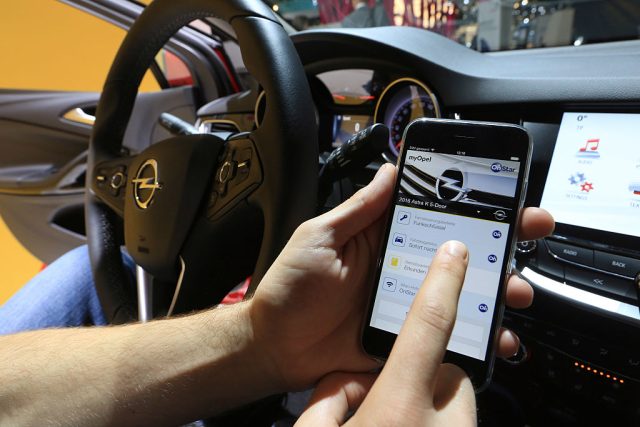
As you might imagine, we at Ars get bombarded with PR pitches about connected cars. Devices that plug into your car's OBDII port. Smartwatch integration with new models direct from the factory. Cars that alert you if you've left your keys behind. These are just the tip of the iceberg, and more ideas like them are coming from both the tech and auto industries. LTE modems are becoming widespread in new models and not just in luxury cars—try buying a Chevrolet without embedded 4G.
There's just one problem: most Ars readers, in my experience, think connecting a car to the internet is the dumbest thing you can do on four wheels. Who can blame them? Last year saw a litany of car hacks that affected aftermarket devices but also security flaws direct from the factory—1.4 million Fiat Chrysler vehicles had to be recalled as a result.The problem is with the digital nervous system of our cars. Back when automotive network standards were being created, the idea that cars would use the Internet to interface with the outside world was ludicrous. And so, there's little—or none—of the sort of network security in place that you'd take for given if designing things from a clean sheet. As long as you have access to the Connected Area Network (or CAN), your electronic hooks are into the engine, the brakes, and even the steering.
And for what? Having tested a bunch of consumer connected car products, from Automatic through to Zubie, I struggle to see the benefit. You can quantify your driving, but by and large these gadgets amount to a Fitbit for your car. I don't know about you, but I'm not sure my car needed a Fitbit in the first place.
OK, so there are some legitimate reasons you might want to connect your car to the Internet with one of those OBDII dongles. Fleet operators can use them to monitor their vehicles. And if you're self-employed and drive for work, they may be good at tracking things for invoicing and tax returns.
You can even get a discount on your car insurance. Progressive pioneered the way here in the US, but many insurance companies also use telematics now. According to Octo Telematics, which supplies insurers with a technology platform that has over 4 million connected users, there's a payoff for drivers beyond cheaper rates. Octo's platform provides feedback and scores drivers based on their data—things like driving too fast or braking too hard.
Octo's CEO Nino Tarantino told me that 40 percent of Octo users significantly improved their driving scores after six months of feedback. (He followed up by remarking that we couldn't necessarily conclude they were safer, but that there were "improvements based on the score Octo gives them.") But is a discount on your insurance worth the hacking risk? In January 2015 we reported on a security flaw in Progressive's SnapShot device.
Regardless, the trend toward connected cars is accelerating. Within the next few years, our vehicles will communicate both with each other and with infrastructure like traffic lights, and that communication will reach deep into the car's CAN. After all, you need to be able to speak to the brakes in order to tell them it's time for an emergency stop. And those completely autonomous cars that so many can't wait for? Good luck getting one of those to work if it's not permanently connected to the cloud.
How long before every car is connected? That's a hard question to answer. There are a little under 260 million passenger vehicles here in the US. The analysts at Edmunds.com tell me that the average age of those cars is 11.4 years. Most automobiles are traded in for a new vehicle after about 6.3 years, but predicting how long it takes an entire nation to turn over its fleet isn't something Edmunds' analysts are comfortable doing.
I feel on firmer ground predicting that every new car for sale will be connected within the next 10 years. Although the National Highway Traffic Safety Administration hasn't mandated V2X yet, there's every sign that will happen soon. If that's an automotive future you don't like the sound of, you might want to start stockpiling jalopies somewhere.
reader comments
165